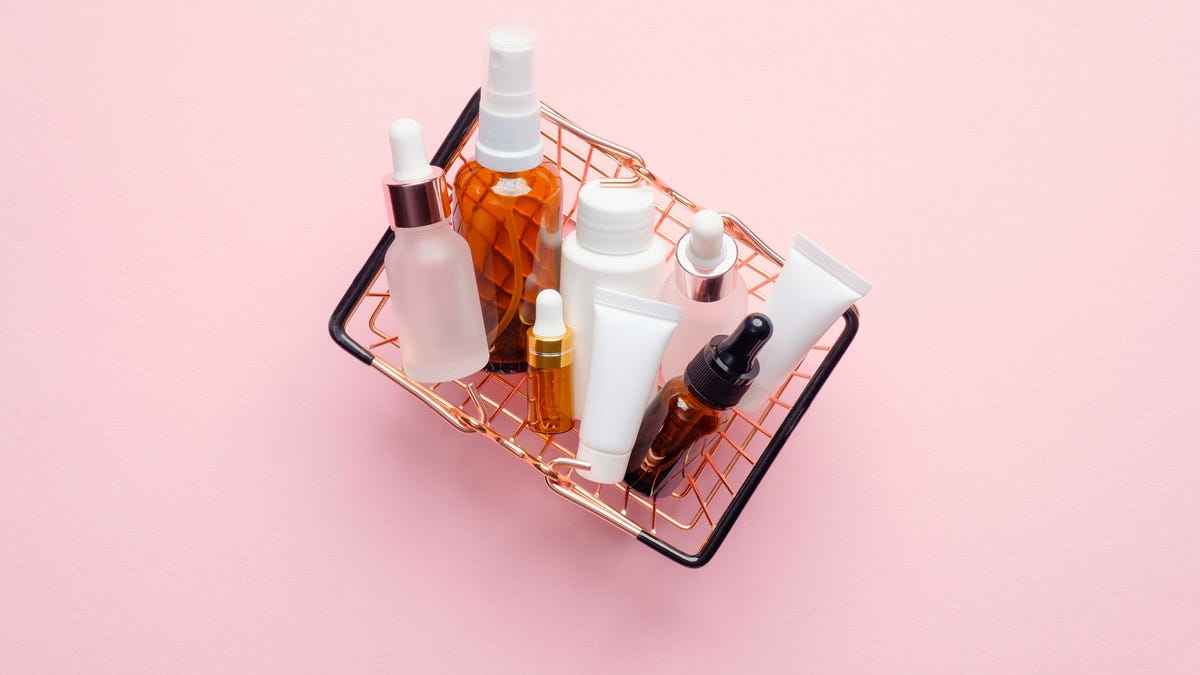 Why You Can Trust CNET
Why You Can Trust CNET Want Better Skin? Here's Where to Start
You don't need fancy treatments or a perfect diet.

Putting together a skin care routine can seem daunting: There's an endless stream of treatments and products available to try, plus all sorts of conflicting advice on the internet.
You'll be happy to know that the basics of skin care are pretty simple. And if you're a health-conscious person, chances are you're already checking most of the boxes below.
So even though beauty bloggers and influencers may make you feel like you need all the things (like fancy lasers and light devices) to get better skin, there are a few simple, science-backed principles that can help you more than owning a bunch of products.
Keep reading for what science and a dermatologist say you should really care about when it comes to your skin.
1. Use sunscreen every single day
"Your skin is your largest organ and should be taken care of," dermatologist Dr. Amie Sessa told CNET. Her top tip for taking care of your skin? Sunscreen is nonnegotiable.
If you spend most of your time indoors or don't live in a sunny place, it's easy to neglect sunscreen, especially in the winter. But you still need sunscreen since your skin is exposed through the car or while walking on your commute, and you can still get sun damage in overcast weather. "Apply a daily moisturizer with SPF 30-plus to your face, neck and your chest every single day -- make it a habit so you don't have to think about it every day," Sessa said.
Read more: Best Sunscreens for 2022
Apply a moisturizer soon after washing your skin to help seal in moisture.
2. Keep your skin moisturized
It's important to keep your skin moisturized in order for it to feel and look healthy. And even if you have oily skin or acne, your skin still needs moisture.
"Most people should apply a moisturizer immediately after bathing to seal the moisture in. My favorite over-the-counter moisturizers are Cerave cream and Eucerin Advanced Repair," Sessa said.
Equally as important as moisturizing is making sure you are cleansing your skin and removing makeup, especially before bed.
Sleep is important for overall health and your skin health.
3. Get enough sleep
It's no question that getting enough sleep is essential for good health. And it's no different for your skin.
Still not sold? One study found that sleep deprivation clearly affects skin appearance and increases the look of wrinkles, puffiness and dark circles, among other not-so-appealing signs.
"General good health tips apply to the skin, too -- your skin will show if you are getting poor sleep or not enough of it," Sessa said. Aiming for seven to eight hours minimum of uninterrupted sleep will pay off for your complexion.
4. Eat healthy foods
Just like getting enough sleep is important for your health, so is getting proper nutrition. Eating a balanced diet is key: You don't have to restrict any foods, but eating mostly refined carbohydrates, heavily processed and fried foods takes a toll on your overall health, including your skin. Try to incorporate as many nutritious foods as you can, like fruits, veggies and whole grains.
Many experts agree that what you eat has a strong effect on your skin health, and research has shown that diet is important when it comes to things like acne, aging and even skin cancer.
Further, one of the most talked about topics in health lately is gut health -- and the gut microbiome affects your skin, too. Scientists are studying the gut-skin axis and how the bacteria in your gut directly affects skin health. One of the biggest determiners of your gut microbiome is what you eat.
Drinking plenty of water can help you feel better and get better skin.
5. Stay hydrated
Dehydration can cause a ton of unpleasant symptoms like fatigue and digestive issues, just to name a few issues. And since drinking more water can make you healthier, it's also great for your skin. Like Sessa mentioned before, overall healthy habits pay off for your skin, too.
Although many people tout the benefits of drinking water for your skin, science isn't clear on whether drinking water affects skin hydration levels (but it's still good for your overall health, and therefore your skin). Besides using a good moisturizer, you can also add a humidifier to your routine, especially if the air in your home or office is really dry.
For more wellness tips, check out the best deodorants to buy in 2022 and the best sunscreens to slather on as summer approaches.

